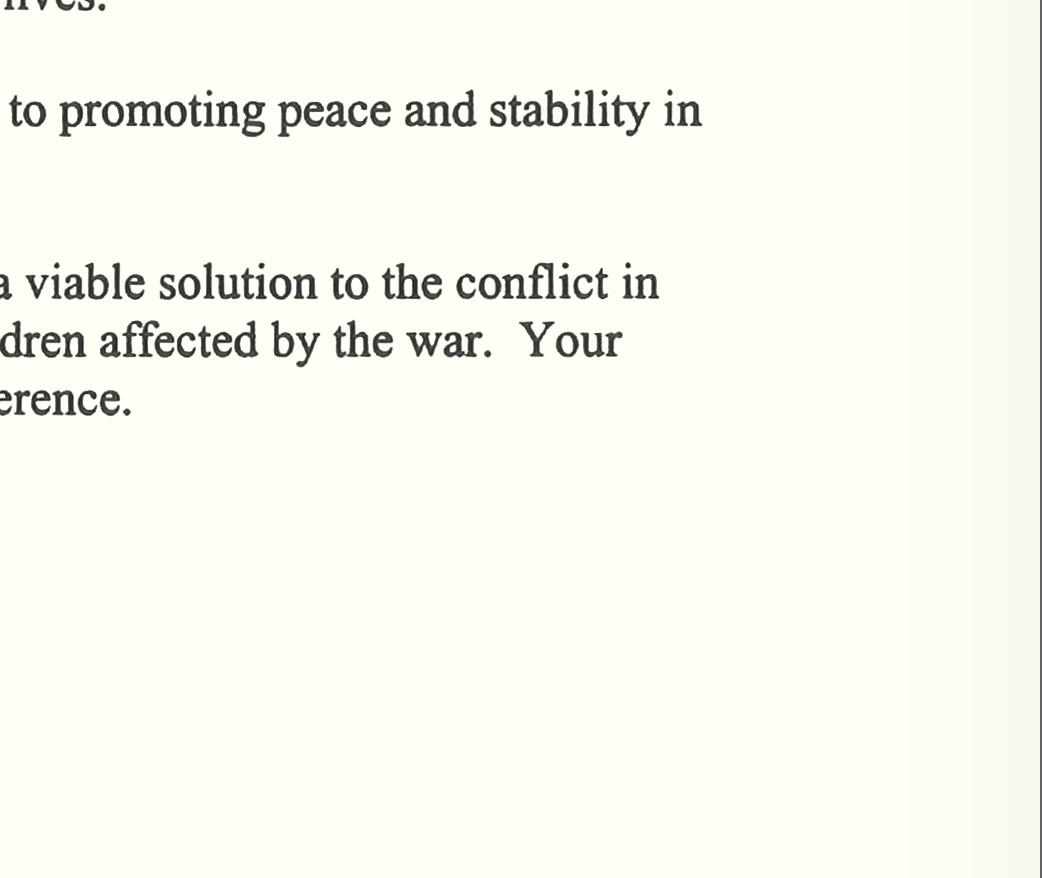Please note that the following is a digitized version of a selected article from White House History Quarterly, Issue 74, originally released in print form in 2024. Single print copies of the full issue can be purchased online at Shop.WhiteHouseHistory.org
No part of this book may be reproduced or distributed in any form or by any means, electronic or mechanical, including photocopying, recording, or by any information storage and retrieval system, without permission in writing from the publisher.
All photographs contained in this journal unless otherwise noted are copyrighted by the White House Historical Association and may not be reproduced without permission. Requests for reprint permissions should be directed to rights@whha.org. Contact books@whha.org for more information.
© 2024 White House Historical Association.
All rights reserved under international copyright conventions.
President George W. Bush wrote to former President Jimmy Carter in 2001 with praise for Carter’s humanitarian efforts, including his work to eradicate Guinea worm disease with such innovative solutions as the pipe filter, seen in use here by a young goat herder drinking from Kuse Dam, Terekeka County, South Sudan.
INNOVATION IN ACTION Jimmy Carter ’ s After the White House Effort to Eradicate Guinea Worm Disease
AMANDA LARSON
former u.s. president jimmy carter has exemplified unparalleled dedication to humanitarian causes. Together with his wife, Rosalynn, they co-founded the not-for-profit Carter Center in 1982, two years after leaving the White House, to focus on improving health and peace worldwide. The center is located next to the Jimmy Carter Presidential Library and Museum in Atlanta, and the two are collectively known as the Carter Presidential Center.
One of President Carter’s remarkable endeavors is the effort to eradicate Guinea worm disease, a debilitating parasitic infection that has plagued vulnerable populations in Africa and Asia for centuries. It is now positioned to be the second human disease in history, following smallpox, to be eradicated.
The Carter Center began leading the international Guinea worm eradication campaign in 1986, when an estimated 3.5 million people in twentyone countries suffered from the disease annually. There is no known vaccine or drug that can prevent the disease, which is transmitted through contaminated drinking water. The only preventive measures continue to be health education and filtered drinking water.
The method used by the Tuareg, a nomadic people who traditionally live in arid areas of western Africa, for filtering their drinking water inspired the design of one of the program’s most valuable interventions. The pipe filter, a simple yet ingenious tool, serves as an individualized device to filter out Guinea worm parasites and is used like a straw. The Carter Center’s Guinea Worm Eradication Program learned from the Tuareg
people’s innovation, evolving the design to be more durable and adding a string to wear around the neck, especially critical for people living in conflict areas and where there are nomadic or displaced populations. Collaborating with Vestergaard, a manufacturer of public health tools, has helped to provide tens of millions of filters, which continue to be widely distributed to at-risk communities for free.
President Carter’s postpresidency leadership has been pivotal in raising awareness, mobilizing resources, and ensuring support for the distribution of pipe filters in endemic communities. He has personally championed the cause, traveling to remote villages, meeting with local and national leaders, and raising much-needed support to implement prevention strategies.
The Carter Center’s Guinea Worm Eradication Program has reduced Guinea worm disease by more than 99 percent, averting more than 80 million cases. In 2023, only fourteen human cases remained.
Today the Carter Center continues its leadership in working for the eradication of neglected tropical diseases, having assisted twenty-two countries to secure World Health Organization disease elimination acknowledgment. These numerous successes, praised by President George W. Bush in a 2001 letter in the collection of the National Archives, are a testament to President Carter’s dedication, perseverance, and unwavering commitment to serving humanity, after four years of service to the nation in the White House.








